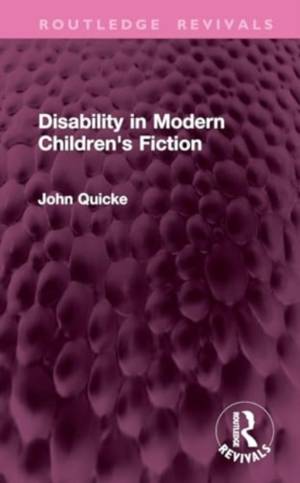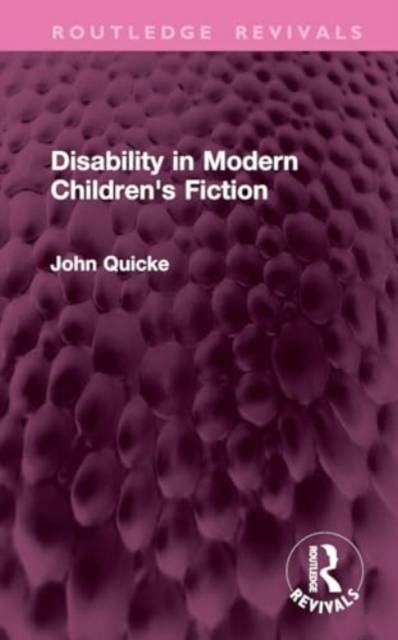
- Retrait gratuit dans votre magasin Club
- 7.000.000 titres dans notre catalogue
- Payer en toute sécurité
- Toujours un magasin près de chez vous
- Retrait gratuit dans votre magasin Club
- 7.000.000 titres dans notre catalogue
- Payer en toute sécurité
- Toujours un magasin près de chez vous
Description
First published in 1985, Disability in Modern Children's Fiction presents a case for the inclusion of a planned element in the mainstream curriculum, specifically designed to encourage positive attitudes and actions towards children with special needs, and for utilising the possibilities inherent in fiction for helping all children to explore their thoughts and feelings in this area. The central chapters of the book are concerned with a critical examination of specific texts, focusing on how they deal with disability in a story context. Books are grouped for discussion under common themes which have been teased out according to their contemporary relevance: the effects on the family of a severely disabled child; the struggle of a child with a disability for personal identity in oppressive social circumstances; the interaction between disability, race, gender and social class; the different reactions of 'normal' children towards disabled peers; the failings of the medical approach to disability; love, sex, adolescence and disability; the relationship between children and handicapped adults. The penultimate chapter is concerned with an evaluation of picture books and quasi-fiction for younger children. This book will be of interest to students of disability studies, pedagogy and literature.
Spécifications
Parties prenantes
- Auteur(s) :
- Editeur:
Contenu
- Nombre de pages :
- 188
- Langue:
- Anglais
- Collection :
Caractéristiques
- EAN:
- 9781032768380
- Date de parution :
- 01-05-24
- Format:
- Livre relié
- Format numérique:
- Genaaid
- Dimensions :
- 138 mm x 216 mm
- Poids :
- 452 g







